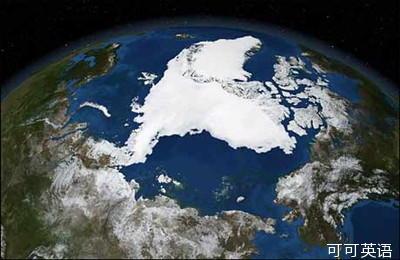In more than a decade of reporting on climate change I can say one thing with absolute certainty.
在这二十多年的报道天气变化预报的时间里,我对一件事还是能够打保票的。
When it's cold outside, like during this recent polar vortex in the U.S., people start thinking this whole global warming thing must be overblown.
当外面天气寒冷时,就像美国最近几年发生的极地漩涡现象,人们开始认为全球变暖现象似乎言过其实了。
The opposite is also true.
但是实际情况其实正相反。
 Which is why the next summer of El Nino is going to do more for action to combat climate change than any activist or scientific study.
Which is why the next summer of El Nino is going to do more for action to combat climate change than any activist or scientific study.
这就是为什么接下来的这个夏天将要发生的厄尔尼诺现象会越来越超过世上任何一个环保积极分子或者气候学家们的研究结果。
Don't believe me?
不相信我么?
A new social science study in the journal Nature Climate Change backs my anecdotal experience.
一项相关的最新科研报告已发表在自然杂质气候变化特刊上面,它能支持我的上述经验之谈。
The report describes the so-called local warming effect.
该研究报告描述了所谓的地区变暖现象。
This effect is a result of people tending to rely on, quote "less relevant but available information… in place of more diagnostic but less accessible information."
这其实是人们更趋于相信的一个结果,例如人们 认为此现象的观点的变化:“不太相关但是确有其事….代替了多为经验判断而缺少可靠事实依据。”
In other words, today's temperature matters a lot more to belief in the problem of global warming than any understanding of how climate change actually works.
换句话说,现在对气温这件事起因于全球变暖,比任何根据气候变化模型的实际研究结果更让人感觉靠谱。
The social scientists ascribe such thinking to the fact that a cold spell or heat wave prompts memories of other similar weather events and thus makes one more or less likely to believe in global warming at that moment.
社会学家们认为此事乃寒期或暖波促进其它同类天气变化事件的存储,并且,因此使人或多或少相信此时此刻全球在变暖。
And that means the recent bitter chill of the polar vortex wasn't unusual for prompting climate skepticism.
这就意味着,近期的极地斡旋带来的严寒并不是普通的迅速导致气候变化这种怀疑论观点的例证。
What was really unusual was how many decades it had been since the last deep freeze in the 1990s—and how quickly we forget.
更可疑的其实是,自从上一个从二十世纪90年代开始的,人类历史上最近阶段经历着的这次深度冰冻期还将持续多长时间—以及我们忘记这件事的速度有多快。
 Which is why the next summer of El Nino is going to do more for action to combat climate change than any activist or scientific study.
Which is why the next summer of El Nino is going to do more for action to combat climate change than any activist or scientific study. Which is why the next summer of El Nino is going to do more for action to combat climate change than any activist or scientific study.
Which is why the next summer of El Nino is going to do more for action to combat climate change than any activist or scientific study.